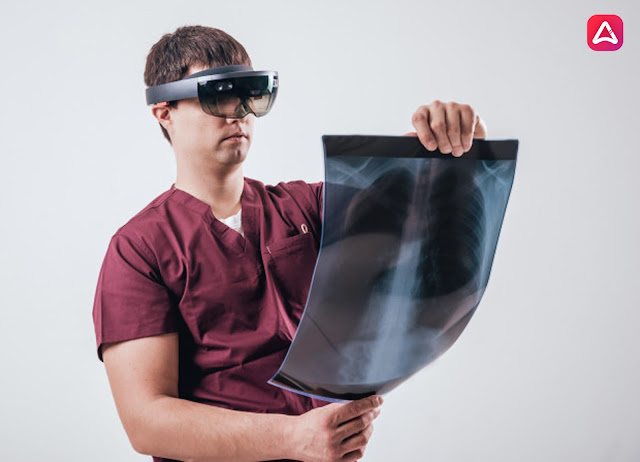Understanding The Role of Augmented Reality In Healthcare
One of the greatest problems facing healthcare today is the extent to which health systems have the digital capacity to engage every customer globally. This involves helping to keep people from being infected with COVID-19 or treating other chronic conditions.
This is the core of where digital health environments play an important role. The manner healthcare has been changing rapidly, but this transition has exacerbated by the COVID-19 crisis. Digital health technology has played a big role in the battle against the novel Coronavirus.
Opportunities In Healthcare Sector With Augmented Reality:
The implementation of Augmented reality in healthcare technology opens up new possibilities in the healthcare field. The global demand is set to cause a size of $1.5B by 2020. COVID-19 has contributed to a dramatic decrease in the number of patients receiving treatment. Even emergency medical cases declined during the lockout.
More has been done in the healthcare sector regarding the use of telehealth during the COVID-19 pandemic. Technology makes it easier to provide treatment across state lines while keeping physicians socially away from patients who may have the virus.
Of the patients who have used e-health for the first experience during the pandemic, 88% said they would use it again. Patients are now prepared and able to engage more closely with the medical industry than ever before, namely by submitting their health data to medical research.
The Covid-19 pandemic is also generating breakthrough opportunities within the healthcare sector, including:
Innovative Medical Technology: Hospitals and medical equipment companies will concentrate on remote patient interaction techniques, including virtual therapy, virtual assistants, chatbots, and remote patient care monitoring.
Digital Health: Automated data processing would need to meet the need for urgent patient data. The pre-COVID-19 digital healthcare start-up investment climate will become increasingly conservative, with improved diligence on highly adaptable solutions.
Life Sciences: In vitro diagnostic (IVD) testing facilities at retail hospitals, malls and airports will become a new norm post-pandemic. Demand for conventional ways of healthcare facilities down unless a medical emergency.
Medical Imaging: Post-COVID-19, the demand for imagery would be immense in most hospitals. Health solutions by top VR developers will experience higher demand as they can effectively distribute demands over an optimized cost.
Future in healthcare solutions:
One of the most important impacts on the sector is the change from hospital-based services to telemedicine and virtual treatment and increasing demand for solutions. Increased demand was seen for digital wellness, retail, and drive-through clinics.
By 2025, customers will be able to extensively examine their health and well-being in real-time through AR-based applications, giving them a snapshot of how time and unhealthful lifestyles will impact their bodies.
We are Appstudio, a leading mobile app development for healthcare that integrates concepts into functional Augmented Reality Applications through multiple platforms. Connect with our trusted & veteran developers delivering quality solutions that blend the digital and physical worlds effortlessly.




Comments
Post a Comment